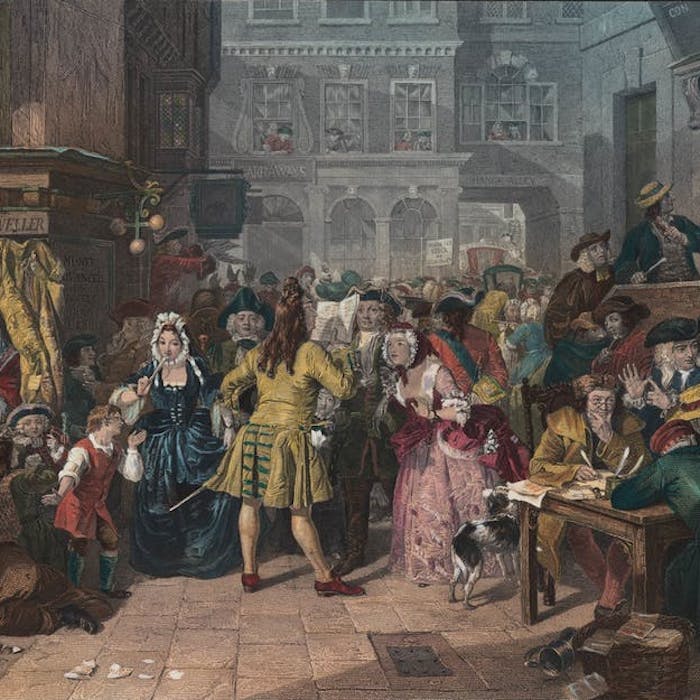
The South Sea Bubble - the 18th-century business that burst
There is nothing particularly new about stock market turbulence, financial crashes and questionable speculative business propositions. One of the most famous in Britain was the South Sea Bubble of 1720, which caught out a great many investors including the genius scientist Sir Isaac Newton.
The South Sea Company was founded in 1711 to trade (mainly in slaves) with Spanish America, on the assumption that the War of the Spanish Succession, then drawing to a close, would end with a treaty permitting such trade. The relevant peace treaty, the Treaty of Utrecht made with Spain in 1713, was less favourable than had been hoped, but King George I and the British Government were overly confident in the future of the company. In fact, two of the King's mistresses were heavily invested in it.
Indeed, the company became something of a national institution. In 1720 there was an incredible boom in the value of its shares, following the company’s ambitious proposal, accepted by Parliament, to take over the national debt. The company expected to recoup that cost from expanding trade, but chiefly from the expected rise in the value of its shares. These did, indeed, initially rise dramatically, but by September the market had collapsed and many investors were ruined.
On the other hand, some got in, and got out, early. Thomas Guy invested in the bubble, sold his shares at the peak, and used his wealth to found and endow Guy's Hospital in London.
The House of Commons ordered an inquiry after the collapse, which showed that at least three ministers had accepted bribes and speculated. Many of the company’s directors were disgraced, and the Chancellor of the Exchequer was briefly locked up in the Tower of London!
The picture is The South Sea Bubble, a Scene in ‘Change Alley in 1720 by Edward Matthew Ward in 1847.
Further reading
Links to external websites are not maintained by Bite Sized Britain. They are provided to give users access to additional information. Bite Sized Britain is not responsible for the content of these external websites.
